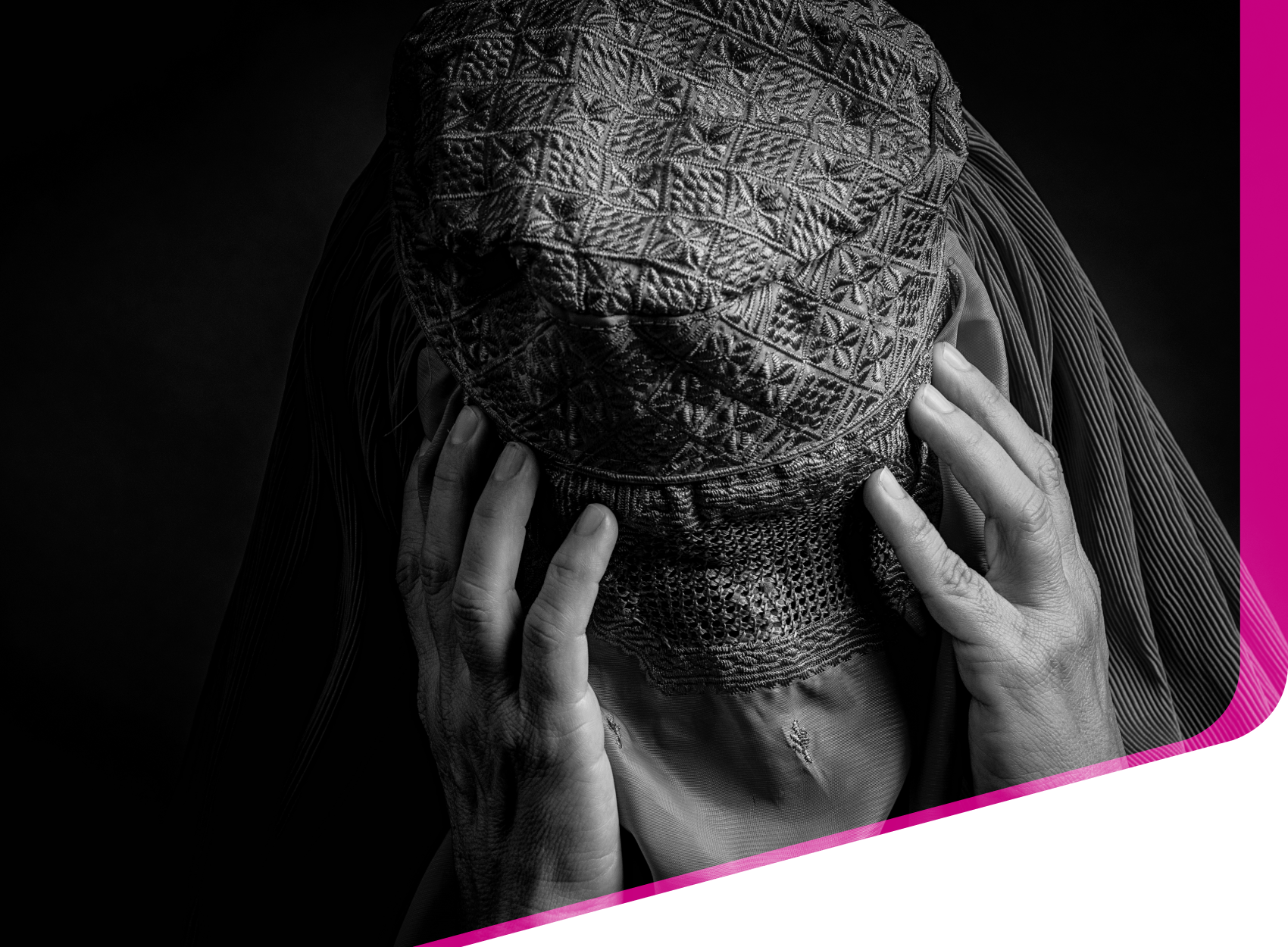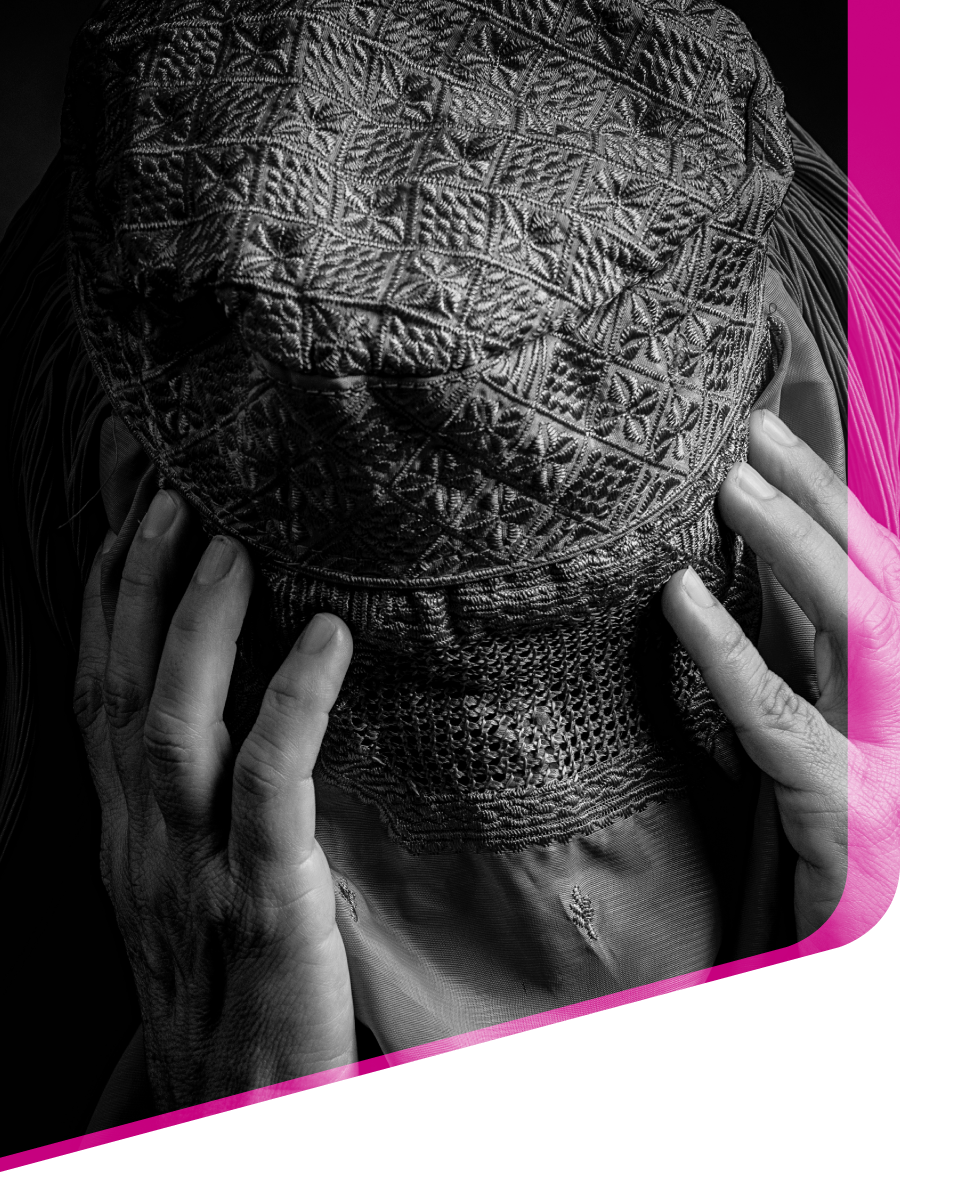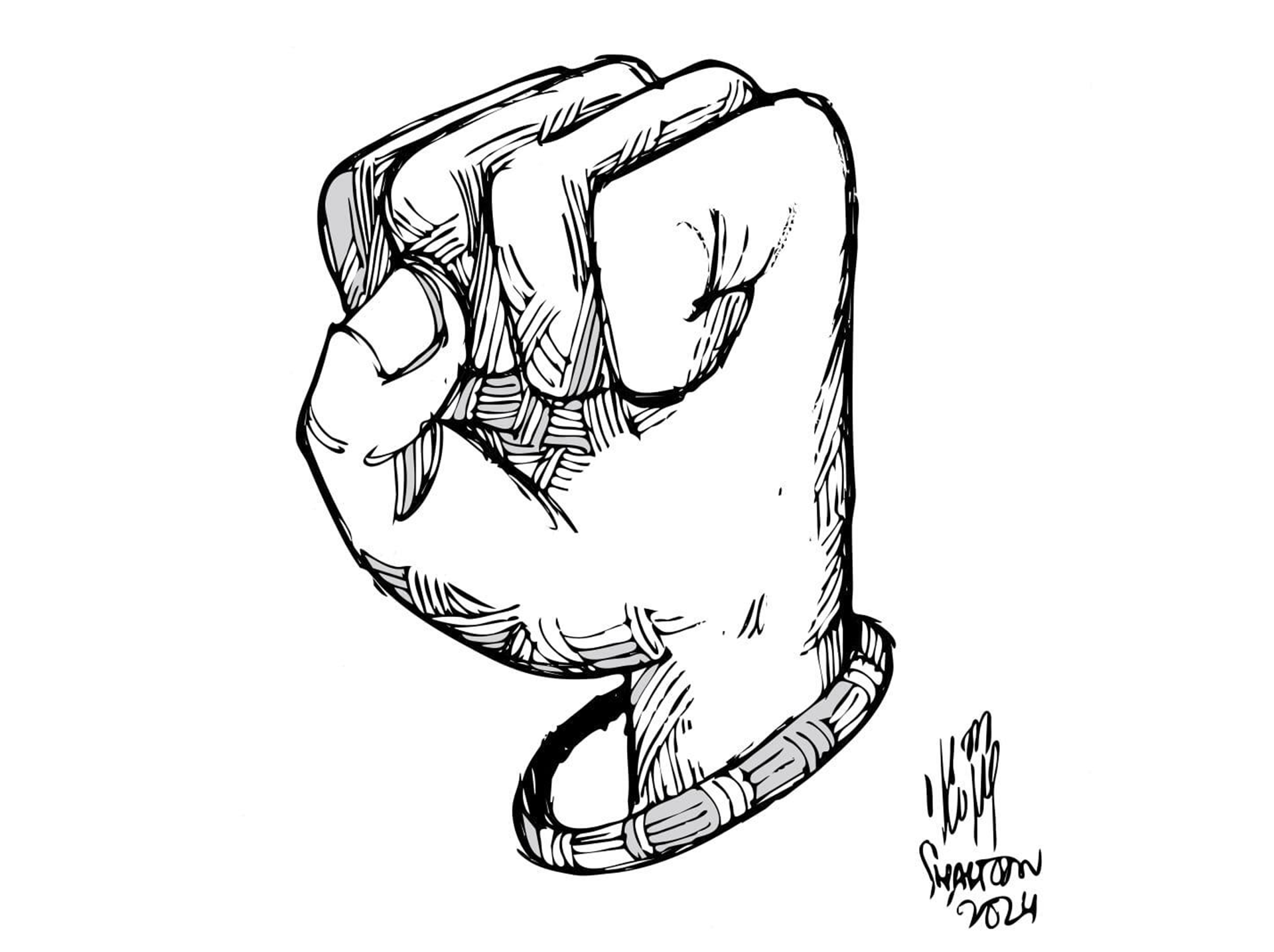
Afghanistan
Afghanistan
Afghanistan
Fawzia Koofi
Fawzia Koofi
Fawzia Koofi
Politician and human rights advocate
Politician and human rights advocate
Politician and human rights advocate

Afghanistan
Fawzia Koofi
Politician and human rights advocate
“My motivation for my work is the need of my people, especially of the women in Afghanistan”
VITA
Fawzia Koofi is an Afghan politician and human rights advocate who served as Vice President of the National Assembly of Afghanistan and was part of the peace negotiation team in Doha. Her dedication to public service led her to champion women's rights after the Taliban barred women from education in 1995. She worked with vulnerable groups, and on women's and children’s rights. Elected to Parliament from Badakhshan in 2005, Koofi became the first woman Deputy Speaker and chaired the women and human rights committee. She led initiatives to improve conditions for women in prisons, prevent violence against women and children, and promote education. She was a key figure in the Inter-Parliamentary Union's Committee on Human Rights from 2016 to 2019. As leader of the Movement for Change party, Koofi was placed under house arrest by the Taliban in 2021 but managed to flee. She now travels globally, advocating for Afghan women's rights and highlighting the security consequences of neglecting Afghanistan's situation. Recently nominated for the Nobel Peace Prize, she authored "The Favored Daughter" and has received numerous international accolades. Fawzia Koofi holds a bachelor's degree from Kabul University and a Master’s in International Relations and Human Rights from the Geneva School of Diplomacy.
Thank you for conducting this interview with us. What motivates you to continue your fight for democracy and the promotion of women's rights in Afghanistan?
My motivation for my work is the need of my people, especially of the women in Afghanistan, and the need of my country for better governance. My goal to join politics was to be able to do things differently because as a teenager, and later a grown-up student, when the Taliban came to power during their first reign, I could see how they were misusing power to suppress the Afghan people. I think it was then and there that the seeds of politics were probably cultivated in me. Although I come from a political family, I never wanted to be a politician. I wanted to be a medical doctor. But when I saw that the Taliban were whipping women, and controlling people's outfits, including details of a man's beard, instead of delivering on poverty eradication, delivering on education, I got interested in politics. Especially, whenever I visited some of the prisons where my husband was detained, I could see the inhumane behavior of the Taliban. And this gave me the passion to come to politics to change things. Afghanistan is such a beautiful country, full of natural resources, and talented and hard-working young people. They deserve a better system of government. And I continue to get my motivation from them. Even now when I'm in exile, I continue to start my day according to Afghanistan time and get my motivation from them.
Since the Taliban captured Kabul, they killed or imprisoned a lot of activists and pro-democracy voices. What concerns you the most?
Unlike the promises made by the Taliban that they will uphold human rights, change their views towards women, which are like their on-the-record statements, that they will allow women to work and pursue education, believe in co-existence or somehow live in harmony with other parts of the society, I would say most of the Taliban went back to their original views and ideologies. They continue to suppress, especially the elite and educated part of society, but also in the villages and rural areas. The difference being that villagers don't come to the media, and the media is being censored. The Taliban continue to kill and conduct extrajudicial killings and arbitrary detention. My concern is that if we do not provide people with alternatives and do not change the political ecosystem, over time, people’s belief in democracy will fade away because, in the absence of any other options, people will start thinking that the Taliban are the only option for their present and future. And that's why my colleagues and I are trying to do everything possible to create some hope for people and alternatives. An alternative where people look at it and then live with hope that the Taliban are not the only option, that there are other alternatives and options too.
With the current climate in Afghanistan, do people still believe in democracy?
The thing is, yes, democratic institutions failed, you know, the Afghan government failed on 15 August 2021, but people's belief in democracy has not failed yet. People still are waiting that maybe change will come, and the Taliban will be overthrown or there will be a kind of power-sharing political settlement based on the will of the people. That's what I'm hearing every day. When people contact me, they are like, ok, when is the change going to happen? So they are expecting changes and that's why I believe democracy has not failed, people still believe in that.

Living in exile, what has been the biggest challenge in promoting democracy and empowering Afghan women to fight for their rights?
Living in exile is full of challenges in every aspect of my life and in the life of many others who were forced to leave their country. The biggest obstacle is the lack of willingness by the international community to give meaningful space to the political oppositions and protectors of democracy and women. For the past year, we have been trying to organize an all Afghan women's summit, where women will come together and discuss the future of their country. But we haven't been able to secure a space to bring women together. Secondly, because the way the Afghan government collapsed in 2021, no one actually has a clear idea on why it went like that. Even people very close to President Ghani, the former president, when you talk to them, don't know why it happened. So there is a huge trust deficit. And people think that everyone who was involved in the power structure in the past 20 years, is responsible, which I agree with.
Will this trust be ever reinstalled?
To be able to gain the trust of people is a long journey. But we have been successful in trying to communicate the message and to work with the communities, even from exile, through digital platforms, to mobilize them. And I think it works. We have been successful in at least working with women. We want to move forward in creating bigger platforms and creating a space for everybody to be able to discuss what is good for their country. And I think that is a first step for creating trust.
As the former vice-president of the Afghan parliament, you advocated for women's rights during the first Doha talks and not long ago the third Doha talks happened. Why do these negotiations fail to provide meaningful protection for women in Afghanistan?
You know, in the first round of Doha talks, it was quite a struggle for us to include women even in the government delegation that was representing the Republic. But it was historic for us to create the Afghan woman movement and be able to include four women, out of a delegation of 21 members. I believe if there were more women and if women were only given more power, probably the end result would have been slightly different, if not dramatically different in the first Doha talks. When it comes to the second and the third Doha talks, I think it's a failure on the international community’s part, because the UN, as an organization, is supposed to protect and ensure women's peace and security agenda, the Security Council resolution 132, and etc. When it violates our rights, then we are very disappointed. I don’t agree with the narrative that the Taliban should be listened to and they should be brought to the negotiations instead of the rest of the community in Afghanistan. This narrative created a lot of concessions to the Taliban and it has emboldened them further.
Is there any way to address this narrative?
We should fix this narrative. We should not give the Taliban further power by making them the only reality in Afghanistan. After the Doha Three, they point their fingers at the same international community that partners with them. They don't care about democracy and people as well as the future of a legitimate government, because they control the whole country and feel that they are the only reality. This is wrong because first of all, the Taliban never actually won the war. Afghanistan was given to them as a gift and people who live in Afghanistan know; and secondly, the international community does not learn from its mistakes to not further empower the Taliban. But from our experiences, we know that if the engagement is not based on clear principles and benchmarks, and if the Taliban are not politically pressured, they will never feel the need to compromise to open up.
Any message to the international community?
If the international community is genuine about peaceful political settlement in Afghanistan, they need to make sure that every segment of the society is included in any negotiations. They should give the same space to the political opposition, to the supporters of democracy, and women and human rights movements in Afghanistan in any kinds of discussions about Afghanistan.
Photo Disclaimer: The image used at the beginning of this interview is a stock photo and does not depict Ms. Fawzia Koofi.
Afghanistan
